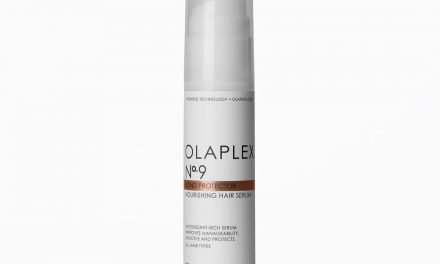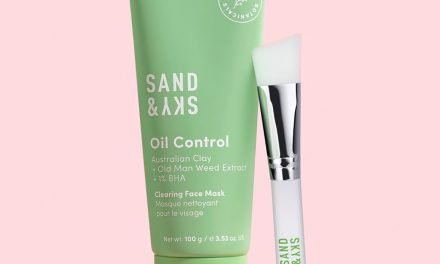You might know Lele Pons from her single “Celoso,” which is triple platinum certified by the Recording Industry Association of America. Or if you’re old school, you may recognize her as the Vine star who took serious physical hits in the name of comedy (and become the first to reach one billion loops along the way). But until the release of her docuseries, The Secret Life of Lele Pons, which debuted last month on YouTube, even the most loyal of Pons’ 41 million Instagram followers would never have guessed that the singer-actor-content creator rose to fame while managing symptoms of OCD, Tourettes, and ADHD.
In the series, Pons addresses her mental health struggles in the remarkably unabashed and straightforward way that perhaps only a star born in social media could. And when we caught up with the multi-hyphenate after her participation in Shein Together, a digital festival and COVID-19 fundraiser, she proved just as much an open book. Ahead, the illuminating mental health advocate talks about the power of therapy, getting fit in quarantine, and the no-fail phone trick that keeps her triggers at bay.
 Source: Instagram
Source: Instagram
Prioritizing Self Care in Quarantine
I’m trying to do a lot of exercise. Lately I’ve been doing glutes, squats and running. I have a trainer, her name is Tiana, and whatever she has planned for me that day, we do. It’s very intense and I hate it, but it’s really good. It makes me feel really healthy.
I’ve been eating healthy as well. I’ve been eating avocado toast lately and a lot of salad, salmon, broccoli soup, pastas and vegetables. Before, I would love to eat tiramisu that my mom used to make, or hot chocolate my mom does with marshmallows. Now I’ll have a fruit salad when I want something sweet.
I’m trying to take care of my skin in my hair a lot, because this is the time to do it. I’ll do a hair treatment with Olaplex Hair Perfector No. 3. I put it in when my hair is still damp, then braid my hair and let it air dry. I took out my extensions when quarantine started and it made me feel amazing. My hair’s growing really naturally now. I feel like my hair is a good length but I just want it longer — I love long hair. I’ve been wearing extensions since I was 15 and this is the first time I’ve ever taken them out.
If I only have five minutes, I close my eyes and try to relax my bod. I can’t necessarily take a nap in five minutes, but I try to calm down and put everything away and put ocean sounds on my phone. If I have more time for myself, I’ll play Mario Party on my DS or play with my dog or watch a movie. Lately, I’ve been watching old movies like Gone With The Wind, Casablanca and My Fair Lady. I recently discovered these movies in quarantine. My mom introduced them to me.
My OCD makes me a perfectionist, which drives me in many ways.
My OCD makes me a perfectionist, which drives me in many ways.
Addressing Triggers Through Therapy
I have learned exposure and response prevention in therapy. It’s one of the best treatments for OCD. It’s very complicated, but to give an example, exposure is kind of like doing what makes your OCD uncomfortable. So if I need to check a comment [on Instagram], the exposure is to put my phone away or to put my hand on top of the phone very, very close and not touch the phone. That’s an exposure and it makes your OCD very uncomfortable when you’re going against it. Then for response, I have to stay with the feeling and stay put and stay calm. I can’t make a face. I just have to have a relaxed face. It’s very hard, I think, just to stay with the feeling and not react. You can think about reacting—it’s okay to have those thoughts—you just have to wait until they go away and they will. It’s a very short period of time.
I got a lot of triggers at night time because that’s when I’m alone and I do a lot of checking rituals that have to do with my phone and social media. So I give my phone to my mom at night and won’t have it until she or my assistant wakes me up in the morning.
Finding Strength in OCD
My OCD makes me a perfectionist, which drives me in many ways. Anything I put my mind to—like working or working out—I become obsessed in that sense. If you turn it into a positive thing, it’s good. But there are a little bit of difficulties when it comes to that, too. I was talking to my therapist the other day, as I’ve been focusing on working out and staying healthy. I kind of see myself not having the best body a little bit more than before and she said because I’m working out and am being a perfectionist—and that’s how it treats you. Sometimes my mind tricks me a lot. Now that I’m working out and focused on my body, I see more imperfections because I’m becoming obsessed with it.
I do reassurance a lot, which is asking other people for validation many times even though you know the answer, just because it’s a ritual, and OCD is like repeating, repeating, repeating; It’s also about doubt. So I’ll ask ‘is this okay?’ until I get the right, ‘yes it’s okay.’ It’s the same thing as touching the wall three times: you know you touched it, but you have to go again and again and again until it feels right.
Advice For Others With OCD
Treatment and medication have really helped me. If you want treatment and can’t afford it, there are people out there who are willing to actually help you. There’s financial aid available, you just have to look. It’s all about wanting to get help—and I think everybody wants to. It’s hard sometimes to accept that you have OCD, so accept that you have it and don’t be afraid to get help or take medication if that helps. Listen to whatever the therapist tells you to do and do things that you love that distract you, whatever that is. For me, it’s dancing.
 Source: Instagram
Source: Instagram
The Power of Connecting With Others
I think it helps me to surround myself with people that bring me joy, so I tend to lean toward people that care about me a lot, like family. Sometimes, meeting new people helps me not compare [myself to others] as much because I get to see that everyone’s very different from each other. It reminds me there’s never going to be another Lele Pons with a mole on her face and a mom and dad like mine.
During quarantine I’ve talked to more people than I’ve ever talked to in my life. I’ve talked to my family in Italy and Miami and my teachers from high school and my ex-boyfriend, just to see how they are doing. I also got to connect with a lot of people by participating in Shein Together, where a big group of us came together to raise awareness and money for the COVID-19 Solidarity Response Fund. I got a lot of feedback and comments, so I think it really helped reach a lot of people, which makes me happy. My biggest message was: if you have a disorder, you’re not alone. I shared that I have many problems and I struggle and I just want other people to know that you can go through it and you can go past any obstacles and disorders that life might give you.
Our mission at STYLECASTER is to bring style to the people, and we only feature products we think you’ll love as much as we do. Please note that if you purchase something by clicking on a link within this story, we may receive a small commission of the sale and the retailer may receive certain auditable data for accounting purposes.






